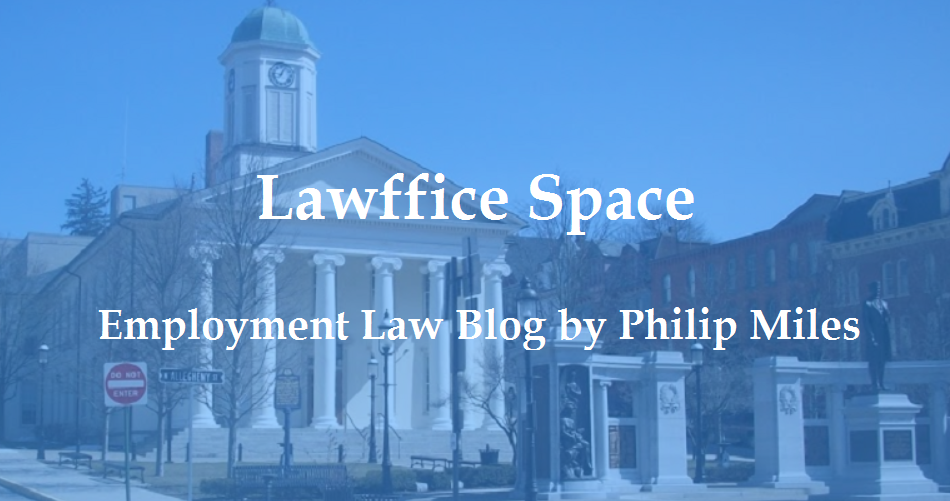 If you're not familiar with those cases, generally Price Waterhouse allows a "mixed motive" discrimination claim where a plaintiff shows that discrimination was a "motivating factor" in an adverse employment action. The "mixed motive" theory was expressly adopted by Congress in 1991 with amendments to Title VII. Then, in Gross v. FBL, the Supreme Court said (paraphrasing), "hey, nobody amended the ADEA (age discrimination) to include mixed motive . . . so I guess it doesn't exist under the ADEA and plaintiffs must therefore establish "but for" causation (a higher standard)."
If you're not familiar with those cases, generally Price Waterhouse allows a "mixed motive" discrimination claim where a plaintiff shows that discrimination was a "motivating factor" in an adverse employment action. The "mixed motive" theory was expressly adopted by Congress in 1991 with amendments to Title VII. Then, in Gross v. FBL, the Supreme Court said (paraphrasing), "hey, nobody amended the ADEA (age discrimination) to include mixed motive . . . so I guess it doesn't exist under the ADEA and plaintiffs must therefore establish "but for" causation (a higher standard)."The defendants argument here is pretty straightforward:
Under Gross, [Plaintiff] must prove that retaliation was the but-for cause of the challenged employment action unless Congress has specifically relieved him of that burden by authorizing a mixed motive claim. In -- in the 1991 amendments, however, Congress authorized mixed motive treatment only for Title VII claims that challenge -- that challenge discrimination based on membership in a protected class.I think the conservative bloc is on board with this, and will view this as a simple case that was all-but-decided when they issued their opinion in Gross.
The liberal bloc clearly appeared skeptical. Justice Kagan repeatedly expressed concerns about "divorcing" the discrimination standard from the retaliation standard within the same statute. This seems like a pretty weak argument - why is it a problem to apply different standards to different sections of a statute using different language?
The stronger arguments (in my opinion) of the liberal bloc are that the Supreme Court has previously held that retaliation is a form of discrimination. So when Congress amended the statute to include mixed motive discrimination, they thought they were including retaliation. Also, the language of the mixed motive subsection refers to "unlawful employment practice" and the section on retaliation calls retaliation an "other unlawful employment practice."
That said, does this sound like it is meant to encompass the "other unlawful employment practice" of retaliation:
[A]n unlawful employment practice is established when the complaining party demonstrates that race, color, religion, sex, or national origin was a motivating factor for any employment practice, even though other factors also motivated the practice.See Sec. 2000e-2(m). Couldn't Congress have just thrown in "retaliation under sec. 2000e-3" if they wanted to make sure retaliation was covered? I think it's a close call. And (just my best guess here), the man who will make that call is Justice Kennedy.
My prediction: Kennedy sticks with his Gross v. FBL pals in the conservative bloc. 5-4 that Title VII requires "but for" causation.

No comments:
Post a Comment